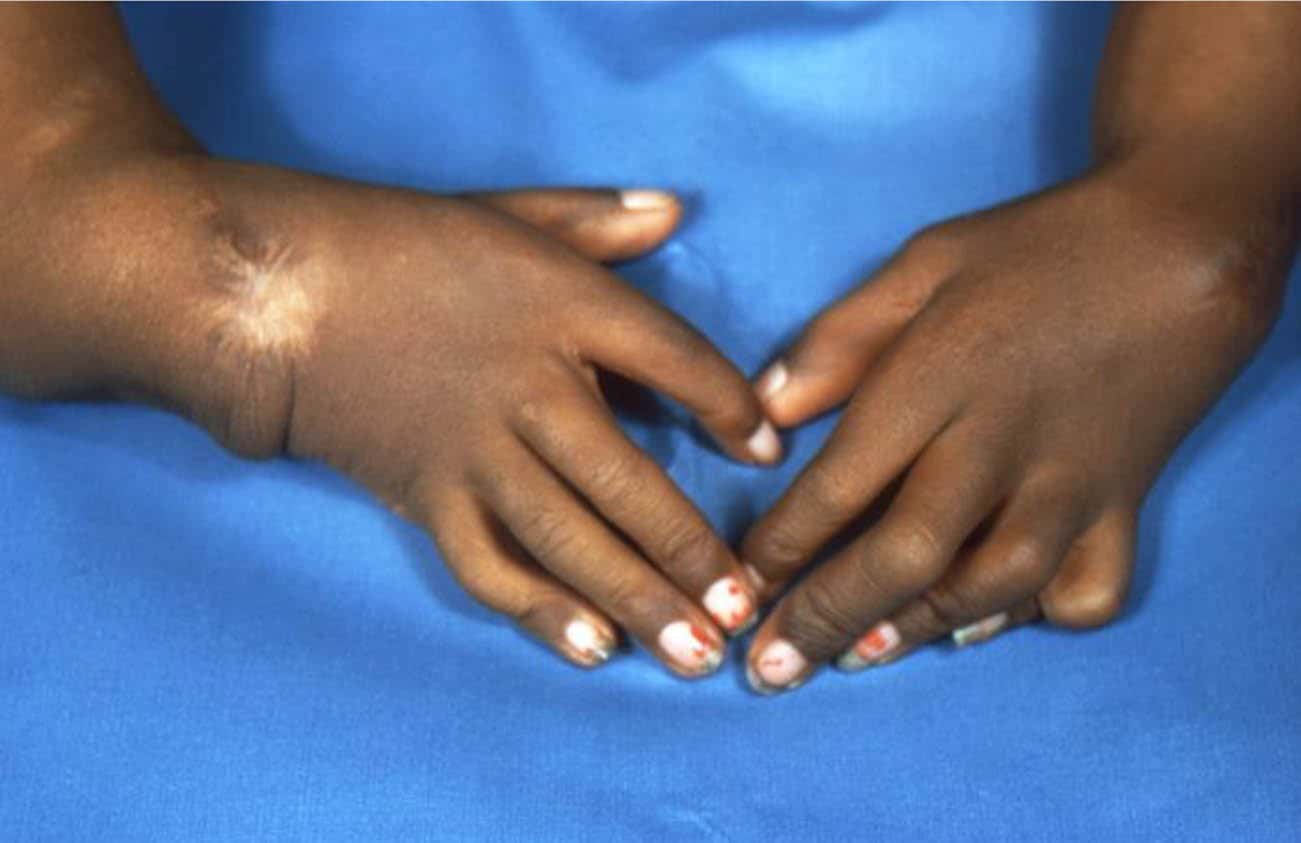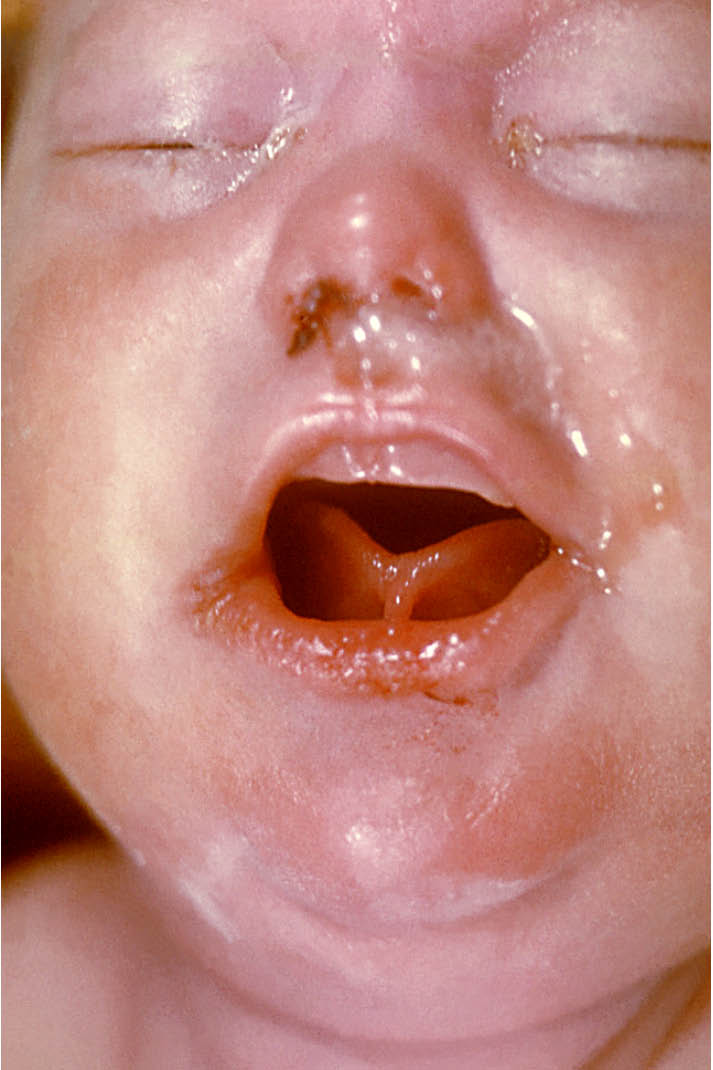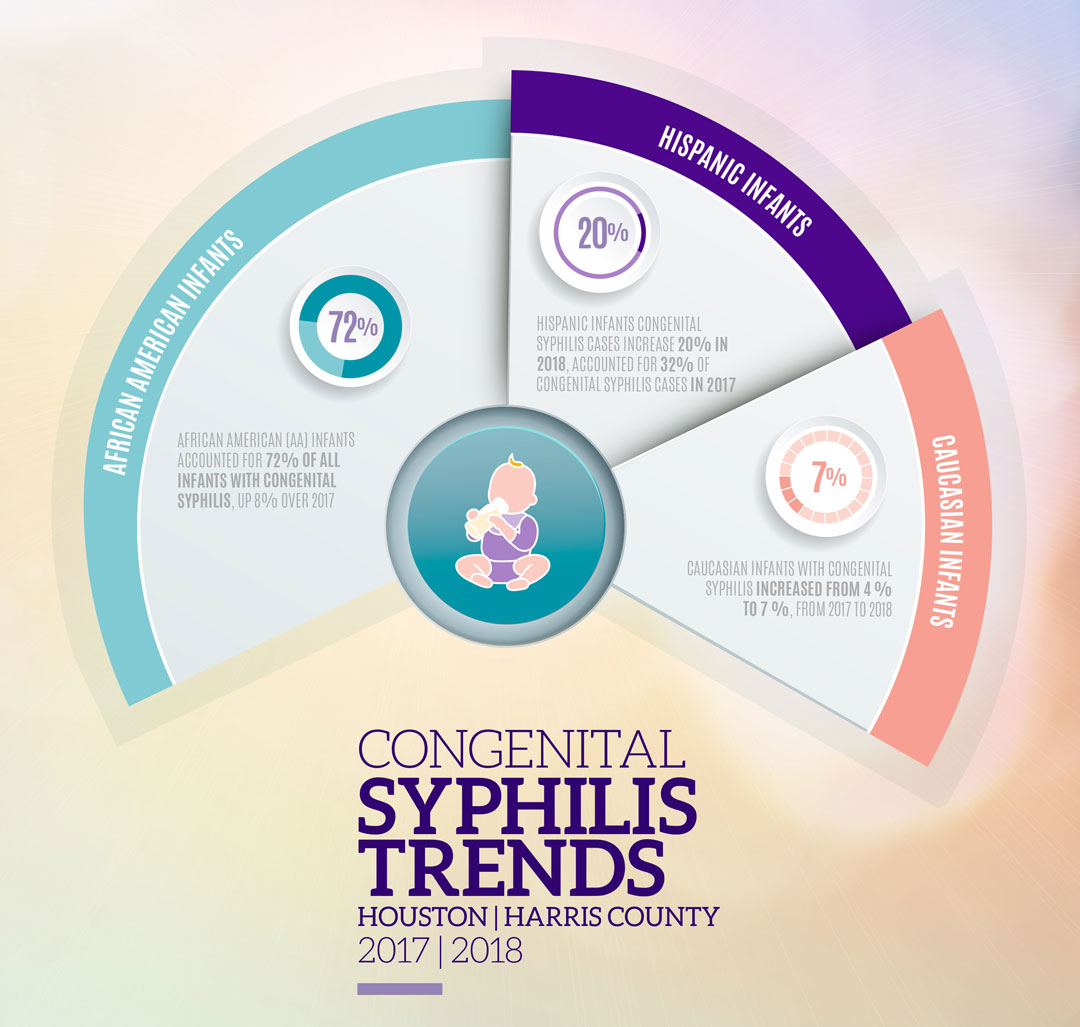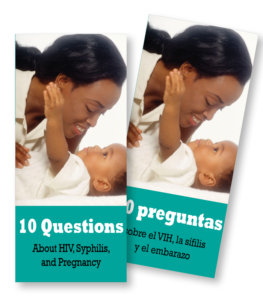Congenital Syphilis
What is Congenital Syphilis?
Women diagnosed with syphilis can pass the infection to their children during fetal development or at birth. Syphilis can cause miscarriage, stillbirth, or death shortly after delivery. According to the Centers for Disease Control and Prevention (CDC), up to 40 percent of babies born to women with untreated syphilis may be stillborn or die as a newborn. Some infants with infection can appear healthy at birth, but develop life-altering complications later in life.
Women diagnosed with syphilis can acquire congenital syphilis. Congenital syphilis is syphilis present in the mother’s uterus and occurs when a child is born to a mother with syphilis. Women with untreated or inadequately treated latent syphilis still have a 23 percent chance of an adverse pregnancy outcome. If left untreated, congenital syphilis can cause poor pregnancy outcomes, including lower extremity abnormalities, miscarriages, premature births, stillbirths or death in newborns. Some infants with congenital syphilis have symptoms at birth, but many develop symptoms later.
Women diagnosed with syphilis should seek treatment as early as possible to prevent serious health problems for themselves and or their children.
Women should consult their primary physician and/or health care provider for treatment. Also, the Houston Health Department or one’s local health department can also answers questions about treatment.
TALK. TEST. TREAT.
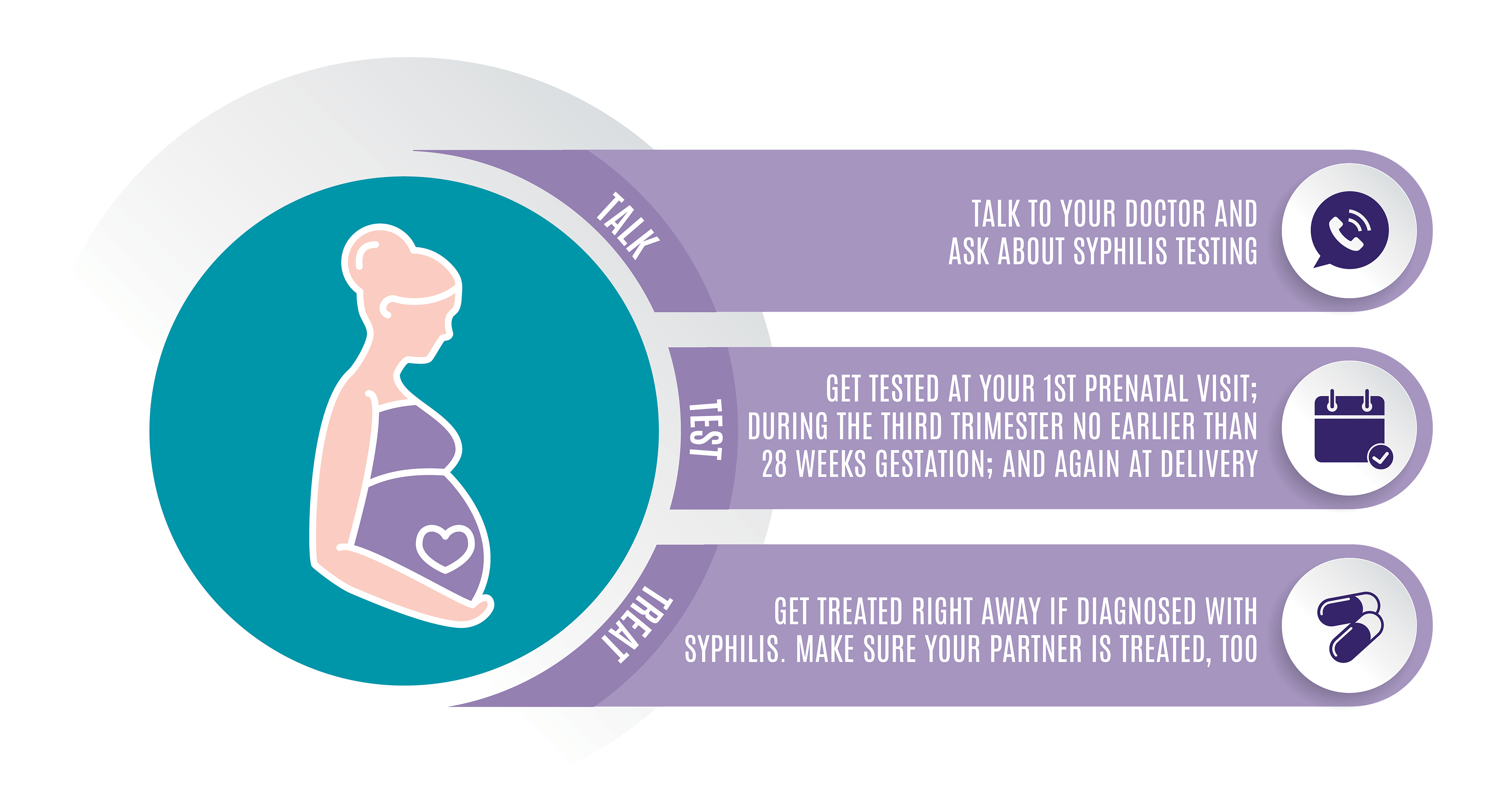
Women diagnosed with syphilis can transmit congenital syphilis to the unborn baby if left untreated.
Congenital Syphilis In Texas
In September 2019, the State of Texas implemented a new state law (Texas Health and Safety Code Section 81,0909) reminding all health care professionals that all pregnant women in Texas are required to be tested for syphilis during pregnancy. All expectant mothers should be tested during their first prenatal visit, during the third trimester of their pregnancy no earlier than 28 weeks' gestation, and again at delivery.
It is important for health care professionals to discuss testing and treatment history with patients being tested, because they can still test positive after receiving treatment.
Congenital Syphilis Trends
on the Rise in Houston and Harris County
According to the Centers for Disease Control and Prevention (CDC), the number of female syphilis cases rose by 32 percent between 2017 and 2018. Consequently, the number of congenital syphilis cases among pregnant mothers in Houston/Harris County more than doubled from 2017 (47 cases) to 2018 (104 cases) — a 121 percent increase. In Harris County, women ages 18-34 accounted for 92 percent of all syphilis cases from 2017 to 2018. Also:
- During the same time period, the number of women ages 35-44 who delivered an infant with congenital syphilis increased 5 percent from 6 percent to 11 percent.
- African American mothers have accounted for 58 percent and 66 percent of infants born with congenital syphilis in Harris County from 2017 to 2018, respectively.
- Hispanic mothers have accounted for 38 percent and 20 percent of infants born with congenital syphilis in Harris County from 2017 to 2018, respectively.
According to the Texas Department of State Health Services, Texas in 2018 recorded the highest number of congenital syphilis cases in more than 10 years. Approximately 1 in 1,000 Texas babies were born with congenital syphilis.
My Prenatal Promise PSA Campaign
The Houston Health Department, with funding from the Texas Department of State Health Services, has launched the state’s first-ever congenital syphilis initiative, the My Prenatal Promise PSA Campaign targeting child-bearing capacity women, with special focus on African American and Hispanic expectant moms in the Houston/Harris County metropolitan area. The campaign aims to educate and inform all expectant moms about prenatal care, family planning, routine doctor visits and testing and implications associated with syphilis, HIV and other sexually transmitted infections.
Facts about STIs
Sexually transmitted infections (STIs) are spread through sexual contact — specifically through vaginal, anal or oral sex. Many STIs have no obvious symptoms. A person with an STI may seem healthy — and still transmit the illness to a sexual partner.
Some STIs can also be transmitted:
- By skin-to-skin contact with infected sores
- Through contact with blood or other bodily fluids
- By sharing needles or syringes
Prevention of STIs
Avoiding sex is the only sure way to prevent contracting an STI through sex. Another option is to use a male or female latex or polyurethane condoms to help protect against HIV and other STIs. If you are sexually active, reduce your risks by knowing if your partner is practicing safe sex and make sure she or he is:
- Not infected
- Has no other sex partners
- Does not inject drugs
It is highly recommended that sexually active people get tested for STIs before having sex. If you are unable to use a male latex condom, inquire about polyurethane or synthetic latex male or female condoms.
Ask your physician, health care provider or the Houston Health Department about testing for syphilis, HIV and other STIs.
Texas Department of State Health Services

The Houston Health Department, with funding from the Texas Department of State Health Services, has launched the state’s first-ever congenital syphilis initiative, the My Prenatal Promise PSA Campaign targeting child-bearing capacity women, with special focus on African American and Hispanic expectant moms in the Houston/Harris County metropolitan area.
The campaign aims to educate and inform all expectant moms about prenatal care, family planning, routine doctor visits and testing and implications associated with syphilis, HIV and other sexually transmitted infections.




